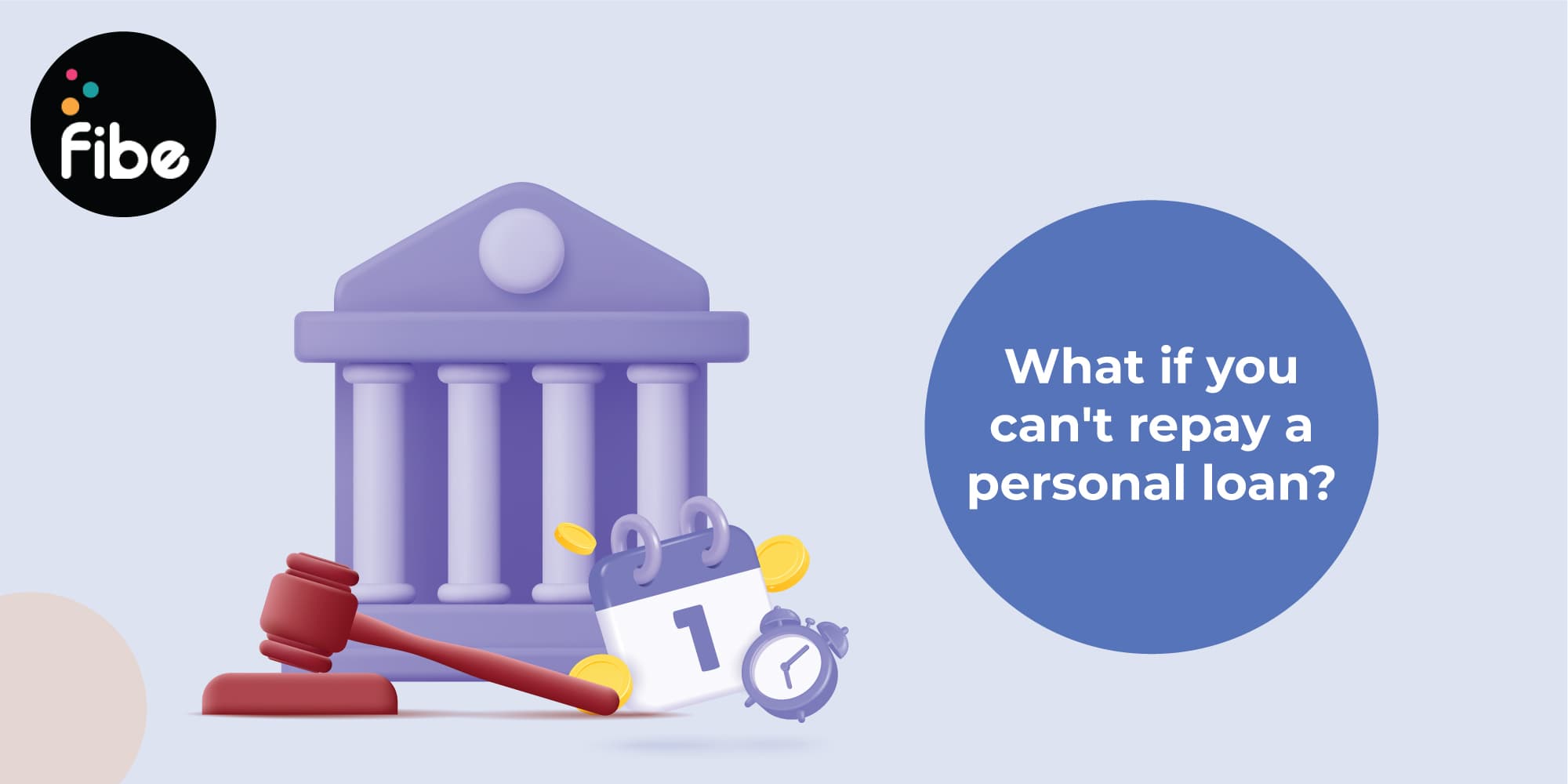- Home
- Blogs
- Personal Loan
- Punishment For Non Payment Of Personal Loan
Punishment for Non-payment of Personal Loans in India
Reviewed by: Fibe Research Team
- Updated on: 5 Jun 2025

Taking a personal loan can ease your financial burdens, but defaulting on repayment can be a serious issue. Many borrowers wonder: ‘Can I go to jail for not paying online loans’ in India?
Let’s explore the legal consequences of non-payment, understand the rules and rights of both lenders and borrowers and learn how to navigate financial distress without risking imprisonment.
Table of Contents
What Happens When You Can’t Repay Your Loan?
Financial companies will seek to collect the amount due to them in a methodical process as outlined by the RBI.
- First, they will send you notifications and reminders through email and SMS.
- Next, they will offer you an extension on the repayment duration and the option for loan restructuring.
- If you are still unable to repay a personal loan in its entirety, lenders are at liberty to take legal action.
- You must pay penalties and the lender may also seize your assets.
- You may also need to submit a post-dated cheque for repayment.
All this can strain your finances and peace of mind, apart from having other outcomes. These are as follows:
- You are credit score may go down 50–70 points with every default.
- You can lose your assets pledged as collateral, if any.
- Your co-signer or guarantor will have to pay on your behalf.
- Your lender will charge additional late fees and default charges.
- You will have to pay higher interest for your outstanding EMIs.
Legal Action and Punishment for Non-payment of Loans
- Lenders initially send reminders and try to negotiate with the borrower in case of missed EMIs.
- If the borrower misses 3 personal loan EMIs or 90 days pass from the first unpaid EMI, the loan is classified as a Non-Performing Asset (NPA).
- After 180 days or six consecutive missed EMIs, the lender can escalate the matter to a civil court.
- The case is taken up under Section 138 of the Negotiable Instruments Act, 1881.
- The court reviews the borrower’s reason for non-payment and other relevant factors before announcing a final verdict.
- The verdict given by the court is binding on all parties involved.
Rights of a Borrower
Here are the legal rights entitled to you by RBI during the loan recovery process:
- Rights to Notice: You have the right to get a 60-day notice when the lender is putting up your asset for sale.
- Rights to Fair Value: Lender must maintain transparency about the value of the asset.
- Rights to be Heard: You can legally raise objections during the 60-day notice period to regain your possession by paying the due amount.
- Rights to Human Treatment: Lender must maintain the dignity of the borrower and not pressurise you for payment during the recovery process.
- Rights to Claim the Balance: If the asset sells for a higher value than the due amount, the residual funds legally belong to you as the borrower.
While these rights are available for your protection, it is best to avoid facing legal action. Maintaining a good repayment history allows you to get better terms on your loan and repay comfortably and without missing EMIs. You can check your credit score for free on Fibe to ensure your score enables you to borrow affordably.
A competitive rate of interest and proper repayment planning can help you pay your dues on time and also build a better score for the future. This will also help you boost your financial wellness today and tomorrow.
FAQs on Non-Payment of a Personal Loan
What is a legal notice for non-payment of a personal loan?
Legal notice for non-payment of loan is a document the bank or NBFC sends to the borrower when they default. It contains the following:
- Reminder of the loan agreement terms
- Defaulted payment amount
- Deadline for payment
If you do not pay within the mentioned period, the lender can take the matter to court.
How do I settle an unpaid personal loan?
Generally, loan settlement is the last option lenders give after considering your financial situation and other factors. You can pay the final amount to close the loan by choosing this option. This amount is lower than your outstanding balance and is subject to the lender’s discretion.
How long does an unpaid loan last?
Old unpaid dues are only valid for seven years. After this period, the lender can’t act if they have not maintained contact. Further, after this period, the adverse effects of the default will not be visible on your credit report.
